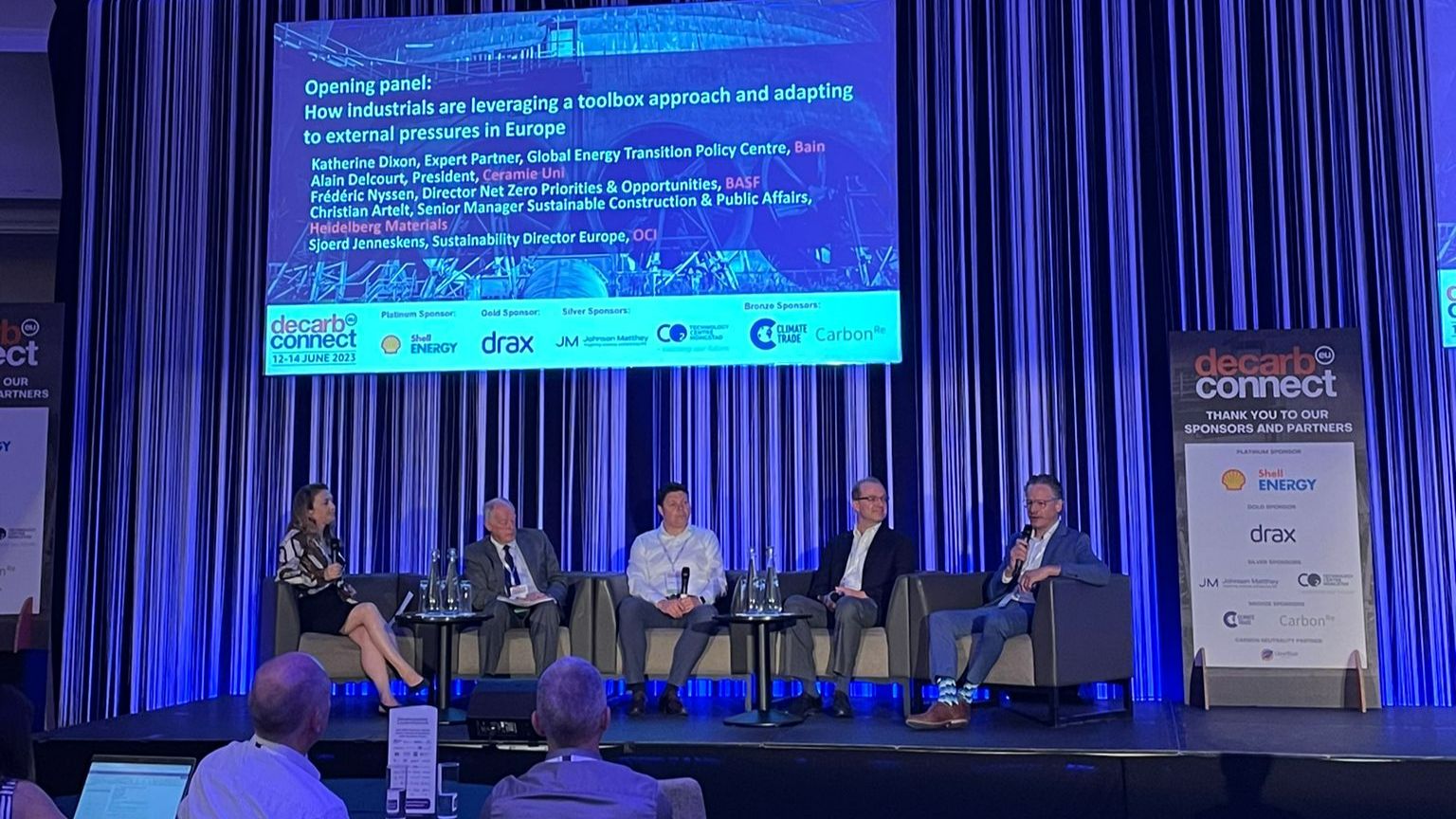Last month Sjoerd Jenneskens, our Sustainability Director Europe, was at Decarb Connect speaking about what more needs to be done to accelerate industrial decarbonization in the hard-to-abate sectors.
Sjoerd joined other hydrogen economy leaders on two panels:
- “How decarbonisation leaders are leveraging a toolbox approach and adapting to external pressures in Europe” moderated by Katherine Dixon from Bain. Sjoerd highlighted:
- Companies like OCI at the start of value chains have to continue taking the lead in driving decarbonization. The 2 basic molecules that OCI produces (ammonia and methanol) can be found in 90% of the physical value chains and are crucial for hard-to-abate sectors like shipping, so the potential impact brings huge opportunity but also responsibility.
- Our experiences collaborating across our value chain from suppliers of green hydrogen to partners like Simpsons Malt and Agravis using our Nutramon lower carbon fertilizer to decarbonize food production in Europe.
- That most technology barriers have been tackled for our industry, but some remain depending on the application. The barriers are mostly in scaling-up, driving down cost per unit across the value chain, infrastructure and investment in infrastructure, and the ability to apply mass balance measures.
- The key role governments must play: They need to create a level playing field across the full spectrum of hydrogen value chains, ultimately enabling end consumers to make well-informed choices on the low carbon and green products they purchase.
- “What is the EU doing to improve European competitiveness and accelerate decarbonisation?” moderated by CEPS’ Milan Elkerbout, where the panelists discussed how:
- The pressures on Europe to retain industry are not new – Although the impact of the US’s Inflation Reduction Act has been significant. During the last two years gas prices have been led to significant curtailments and substitutions of EU production by imports for the ammonia and methanol industries.
- The EU is taking steps to respond to the IRA. While progress if encouraging, we need to scale quicker, simpler regulations, and to ensure that the schemes are consistent across the EU in order for various regions to build hydrogen hubs and contribute to a wider, connected European hydrogen ecosystem.
- Now is the time to incentivize industrial decarbonization fast and at scale: A balanced implementation of both carrots (incentives) and sticks (mandates or taxes) should create both a demand push and pull across various value chains. Historically the EU has been focused predominantly on sticks, but the time is now to implement more carrot policies and mechanisms fast and at scale in response to the overseas investment climate.

